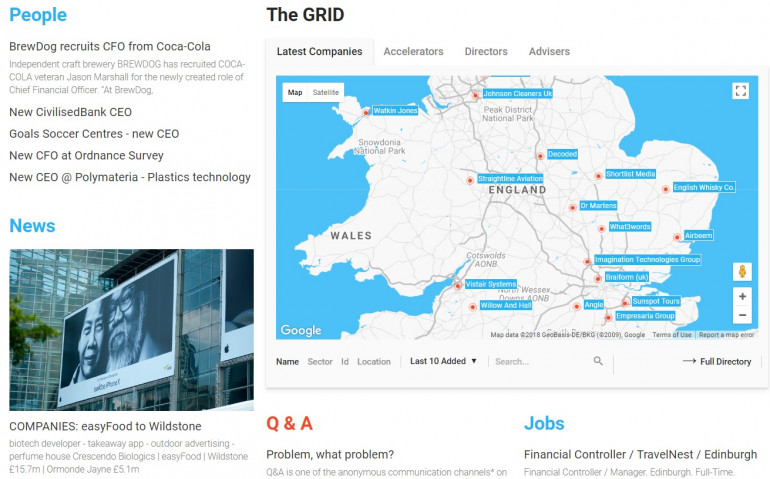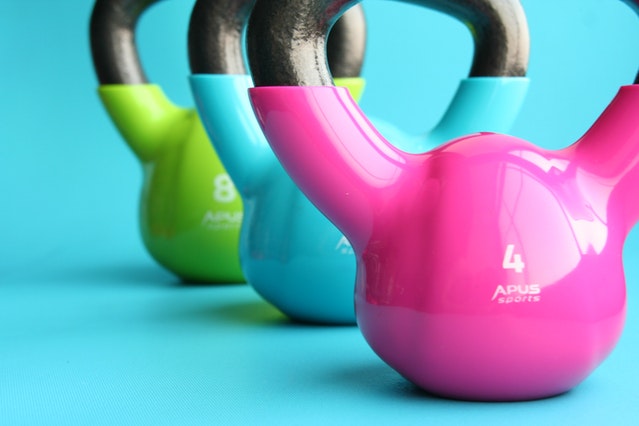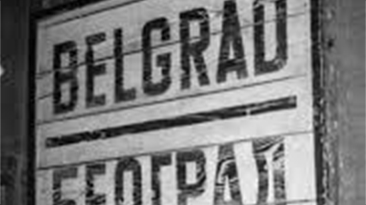Published by Directorzone Markets Ltd on March 13, 2017, 9:00 am in News, Other
Thursday February 14th 2019
EndsThursday February 14th 2019

Flat Iron £8m | Fat Face £220m | Gymshark £12.8m | First Mile £11.3m | Cambridge & Counties Bank | Livingbridge | ECSC £4.4m
News about 7 UK growth companies and/or accelerators + turnover in the GRID marketplace 5th – 11th March 2017:
FLAT IRON: YouTube butcher raises £10m to beef up empire | Kiki Loizou, The Sunday Times. March 5
DZ profile: Flat Iron Steak Limited
Business: chain of London steak restaurants at four sites in the capital
Launched: 2012
Location: London
Founder: Charlie Carroll, 33, opened his first Flat Iron restaurant five years ago, serving steak for £10.
Staff: 200
Financials: reaps pre-tax profits of £1m on revenues of £8m.
Investment: has raised £10m from PIPER, the private equity firm behind jewellery maker Monica Vinader and posh swimwear brand Orlebar Brown. Piper has taken a significant minority stake in his venture.
FAT FACE: Weak pound puts a frown on Fat Face | John Collingridge, The Sunday Times
DZ profile: Fatface Group Limited
Business: Retail clothing chain with almost 230 stores
Launched: 1988
Location: Havant, Hampshire
Founders: Tim Slade and Jules Leaver
Staff: Anthony Thompson, CEO. Chaired by the former M&S; boss Lord Rose.
Financials: Year to May 2016: reported £16.3m profit on turnover of more than £220m and that Ecommerce …now over 18% of the business (2015: 16%). Fat Face’s appeal for leniency on its £149m debt pile illustrates the challenges facing retailers. Like many of its rivals, it sells clothes made mainly overseas in low-cost countries such as China and India. While it hedged some of this currency exposure, Fat Face said a prolonged sterling slump would erase some of its overseas cost gains and hurt profits. The company, pays £9.4m annual interest on its debt, which must be refinanced between 2019 and 2021.
Investment: owned by the private equity firm BRIDGEPOINT
News: ….has been forced to seek easier debt terms because of a leap in costs fuelled by the weak pound. The retailer revealed the “covenant reset” …in response to the slide in the value of sterling. Sterling is down 16.2% against the dollar since the EU referendum last June. Every 1 cent drop in the exchange rate will dent profits by £232,000, the company said.
GYMSHARK: Clothing brand idea is working out well for a uni dropout | Laura Onita, The Sunday Times
DZ profile: Gymshark Ltd
Business: online retailer and fitness clothing brand aimed at 16 to 25-year-olds. Gymshark’s products, which cost from £8 to £80, are made in the UK and China and sold to customers in more than 150 countries. The website initially sold food supplements until he bought a £200 sewing machine to make gym clothes himself. He did everything from packing to marketing.
Launched: 2012
Location: Redditch, Worcestershire
Founder: Ben Francis, 24, gym devotee, was just 20 when he set up Gymshark. Dropped out of Aston University to run the business.
Staff: has about 60 staff. Eighteen months ago he brought in a senior management team to look after the financial and operations side of the business so he could focus on design. Chief executive Steve Hewitt
Financials: reported pre-tax profits of £1.5m on revenues of £12.8m last year. Sales are expected to climb to “at least” £27m this year, according to Francis. International sales climbed to £7.5m last year and he hopes to increase them further.
Investment: Francis owns 67%; co-founder and old school- friend Lewis Morgan — who left last year — has a 20% stake and the rest is held by other directors. Hewitt owns 7%.
News:
1. Ben Francis has grown it into a business with a multimillion-pound turnover, thanks to social media - has 1.1m fans on the photo-based app Instagram and 1.2m on Facebook, where images of scantily clad fitness fanatics are prominent. The company also sponsors YouTubers and bloggers with a combined social media following of 20m. This drives customers to its website — the only place where the vests, hoodies, T-shirts and leggings for men and women can be bought.
2. He sees Gymshark more as a movement than a business. Last year he and his team travelled to America, Germany, Australia, Canada and Ireland, as well as around Britain, to meet fans and help with workouts. He refused to sell products face to face during the “world tour”.
3. Rapid expansion earned it first place in the 2016 Sunday Times Virgin Fast Track 100 list of Britain’s fastest-growing private companies.
4. New designs have a lead time of as little as four weeks if made in Britain. ...which gives Gymshark an edge over larger fitness and sportswear suppliers that cannot react to fashion trends so quickly.
UPDATE:
Gymshark, launched by Ben Francis, bulks up | Peter Evans, The Sunday Times. April 22 2018
5. ....is to create 450 jobs from its new base in Solihull, increasing headcount to 600 over the next three years
6. Sales forecasted to exceed £100m, up from £41m last year. Made profits of £8.2m last year, sells to 177 countries. Instagram account now has 2.1m followers.
Interview: Gymshark boss Steve Hewitt on his ‘field of dreams’ | Peter Evans, The Sunday Times. December 2 2018
7. Hewitt, 45, has invested heavily in technology and recruited a team of crack data engineers. The products — made in China — are sold through 13 regional websites rather than a central one, allowing better understanding of local tastes. Gymshark sells only direct to customers, so will not be found on the discount rail at Sports Direct.
FIRST MILE: Waste entrepreneur Bruce Bratley on building his recyling empire | Harriet Green, City A.M. March 6
DZ profile: First Mile Limited
Business: Commercial recycling company. Last year, First Mile did 15m collections, servicing over 16,000 businesses on a daily basis. Nero, Metro Bank, Ted Baker and Paddy Power are customers, along with numerous other household names. Already servicing the country’s two largest cities, Bratley is cooking up a plan for rural businesses.
Launched: 2004
Location: Highbury, London N5
Founder: Bruce Bratley, chief executive
Staff: employs 145 people across London and Birmingham
Financials: 2016 Turnover £11.3m +£2.2m (24%) vs previous year
News:
1. Bratley … waste market in London. “People were paying a lot of money for something that was being done badly. Businesses wanted to recycle, but the councils just couldn’t be bothered. I got the van, went to TM Lewin on Jermyn Street and asked them what they did with their waste. They were getting 25 bags and a weekly collection. I said I’d collect daily, recycle everything and do it for less money.”
2. Bratley didn’t just start with infrastructure – he decided to create a new category: waste data. He didn’t only want to know how many sacks had been dropped off to a business, and how many were collected. He wanted to provide information for his customers on their businesses, and he’s gone further than smart bins. Recycling ….is getting more and more advanced: “the machines are better, there are QR codes on bags so consignments can be tracked, robotics and AI are playing a big part in cleverer sorting.”
“…we have to tell businesses how much waste they are producing to help encourage them to produce less.”
3. First Mile prides itself on recycling 20 per cent more than competitors, with 90 per cent of the waste it deals with recycled. Bratley starts explaining that there are between 50 and 100 stock keeping units in the UK, and over 50m different kinds of packaging.
CAMBRIDGE & COUNTIES BANK: announces record growth in deposits, lending and customer acquisition | Hayley Kirton, City A.M. March 6.
DZ profile: Cambridge & Counties Bank Limited
Business: Challenger bank which focuses on small business banking
Launched: 2012
Location: Cambridge
Staff: 121. Chief executive Mike Kirsopp and chairman Simon Moore
Financials: revealed profits before tax had leapt to £18.1m for the year ending December 2016, up 77 per cent compared with £10.2m the year before.
Investment: jointly owned by University of Cambridge college Trinity Hall and the Cambridgeshire Local Government Pension Fund
News: Cambridge & Counties Bank today revealed it had boosted its deposits grew by 45 per cent to £685m in 2016 and the number of depositing customers rose by 50 per cent to 6,000, up from 4,000. Lending balances increased by 41 per cent to £588m, compared with the prior year's £416m. At a time when other lenders are laying off staff, Cambridge also revealed today it had increased staff numbers over the year from 94 to 121, while customer satisfaction levels stayed strong at 99 per cent.
LIVINGBRIDGE: Brexit, Isis and attracting entrepreneurs: Just some of the challenges faced by mid-market private equity firm | William Turvill, City A.M. March 6
DZ profile: Livingbridge VC Llp
Business: Private equity firm with portfolio of 35 companies. Livingbridge, which typically invests between £2m and £50m in businesses valued between £5m and £125m, has made 109 investments since it was founded in 1995. Current commitments include CREW CLOTHING, Vietnamese restaurant group PHO and, as of last month (FEBRUARY), family law firm STOWE. One of the firm’s most high-profile successes was FAT FACE, which increased its turnover six-fold to £60m and more than tripled its number of stores to 98 between 2000, when Livingbridge bought a minority stake, and 2005.
Launched: 1995
Location: London EC2
Staff: Wol Kolade is managing partner
News:
1. Founded as Isis Equity Partners, shortly before turning 20 years old in 2014, Isis chose to change its name in light of the rising prominence of its namesake terrorist organisation.
2. As the UK voted for Brexit on 24 June last year, Livingbridge was attempting raise hundreds of millions of pounds, primarily from US funds, to invest in small UK companies. …but …in September, Livingbridge completed its largest ever fundraise, collecting £660m. The challenge now is finding the right companies to invest in, and convincing their leaders that private equity is the best option for them.
3. “[Small companies] really don’t think about private equity,” Kolade admits. “I’d love to think they did, and thought about it. “If they think about it at all, they think about it in terms of: ‘I saw KKR bought Boots the other day. That’s private equity.’ If you’re running a £25-30m enterprise value company, they think: my natural option once I finish is to sell it to trade.”
ECSC: Small-cap week: Cyber security groups. WikiLeaks documents on alleged CIA cyber espionage provides boost to UK companies | Madhumita Murgia, FT. March 11
DZ profile: ECSC Group Plc
Business: cyber security company - provides responses to unexpected cyber incidents, such as hacks and leaks, reviews the cyber security of client organisations and provides “technical penetration testing” — or simulated attacks — to see how far hackers would get in a system. ...help clients test cyber security defences and respond during incidents. ....companies without resources or in-house staff to build secure IT systems can hire ECSC to do that for them. It counts 10 per cent of the FTSE 100 as customers, including BARCLAYS, as well as government agencies such as UK intelligence service GCHQ.
Launched: 2001
Location: Bradford
Financials: The group recorded 15 years of consistent profit growth before listing. It will be announcing its results for the 15 months to December 31 2016 later this month and is forecast to have made £4.4m of revenue. The company expects to treble revenues to £15.5m by 2019.
Investment: listed on Aim in December 2016.
UPDATE:
Cyber security threats stir competition among UK tech groups | Aliya Ram, FT. July 14, 2018
1. warned in full-year results in March that its rate of revenue growth had been “significantly less than expected” ...and that companies took longer to decide how to outsource work than it had forecast.“
2. loss of £3.4m in the year to the end of December 2017 on revenues of £4.1m and did not issue a dividend. Shares have fallen 60 per cent to 0.95p over the past year.








